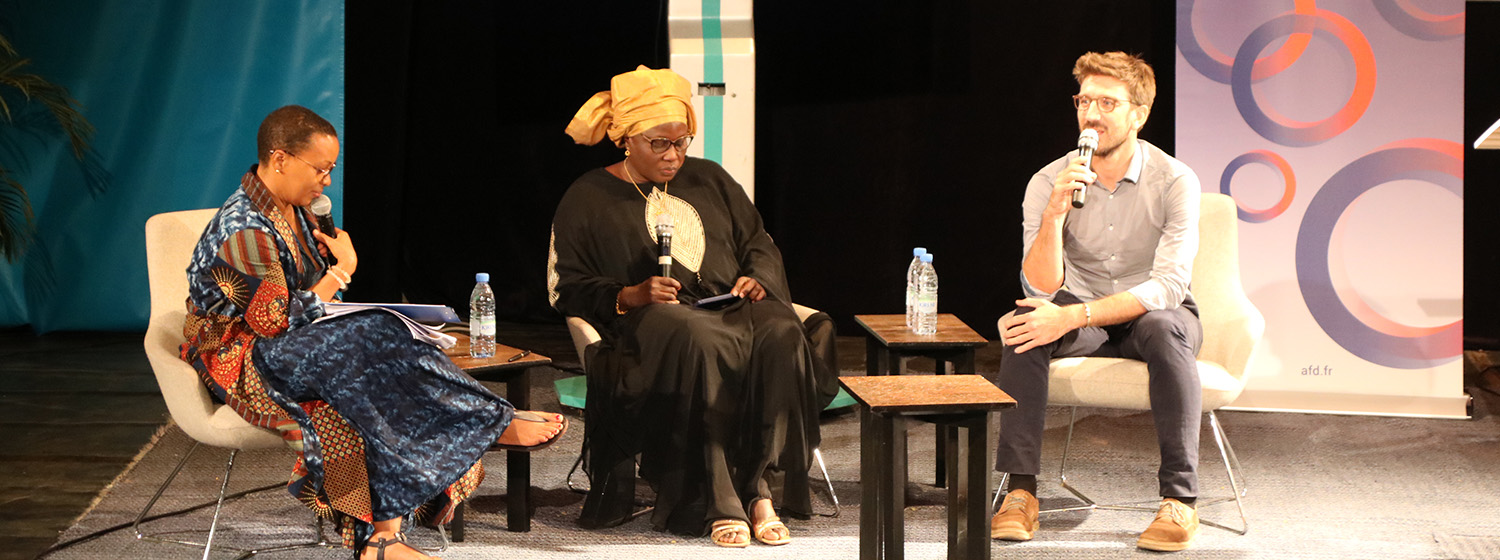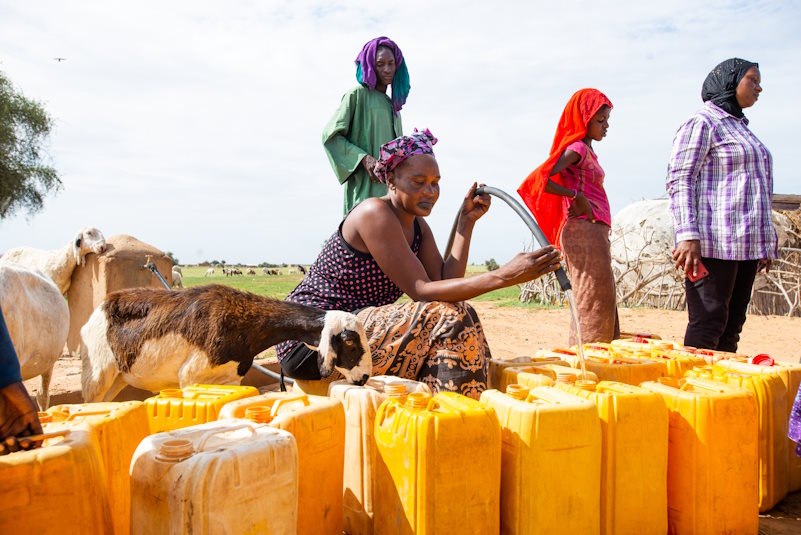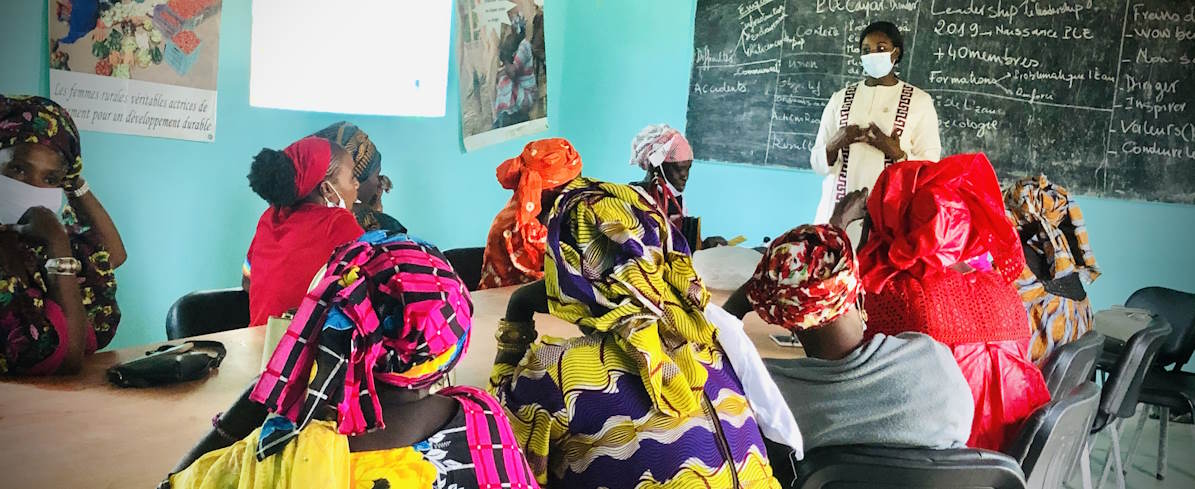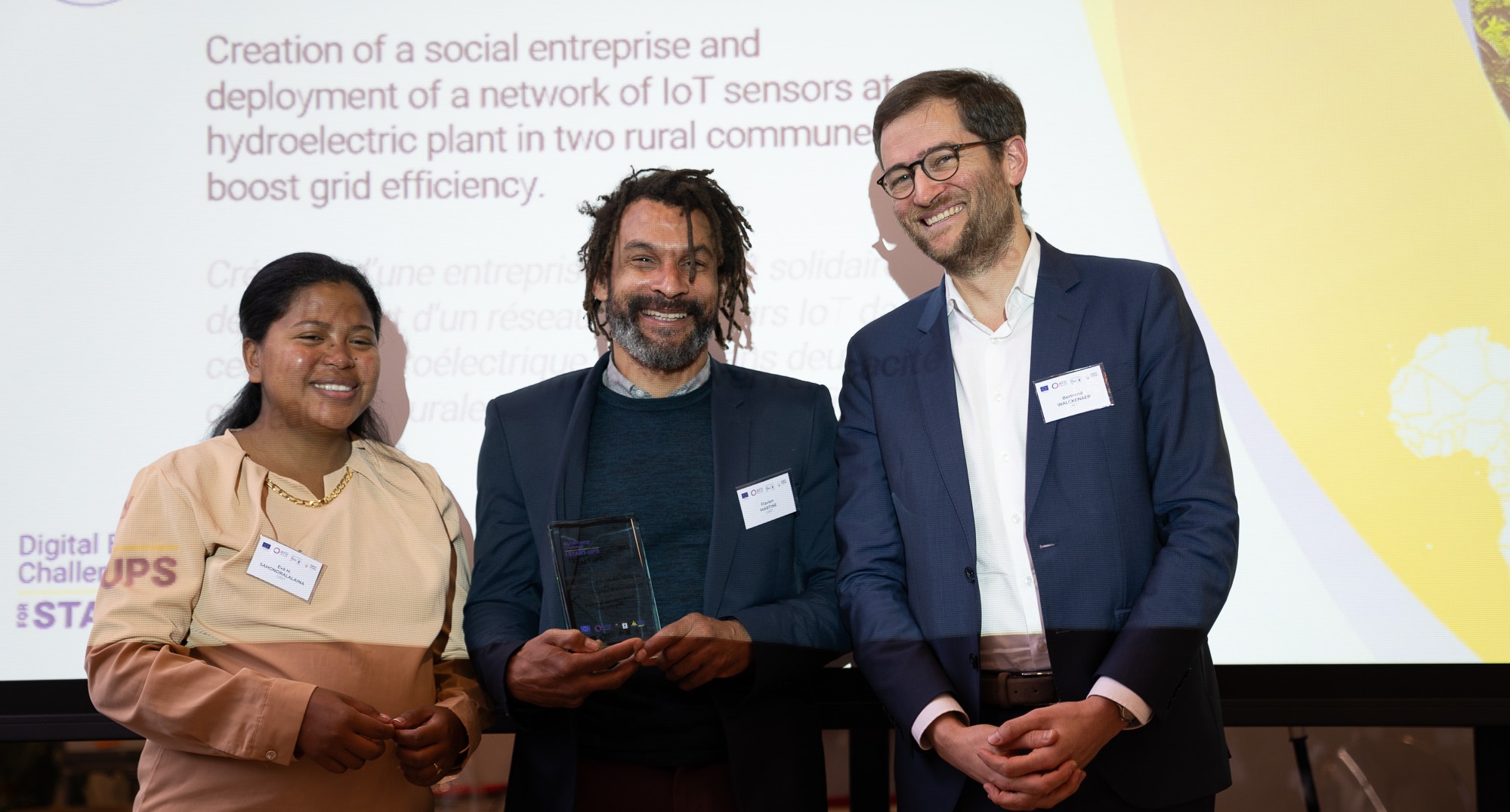During the World Water Forum, on Tuesday 22 March Agence Française de Développement (AFD) organised a live session at the Institut Français in Dakar. Mame Tacko Diallo, coordinator of the Senegalese water and sanitation CSO platform (POSCEAS) and Thomas Lejeune, GRET’s deputy representative in Senegal spoke about the issue of citizen participation, which is at the core of the Diss’Eau project. The dialogue was productive.
Where did the idea at the core of this project come from and how did you begin working together?
Mame Tacko Diallo: Everything started in 2018, the year when POSCEAS was created, because water and sanitation civil society in Senegal was having difficulty making its voice heard by stakeholders in the sector. Civil society has very good knowledge of local realities on the ground, has good ideas and can, if it is involved in decision-making, contribute its vision and the necessary local anchorage. Affiliated to CONGAD, POSCEAS now has 75 local, national and international member associations, and is gradually emerging as an important sectoral stakeholder.
Thomas Lejeune: In 2018, GRET released a publication entitled “citizen participation, a lever for fairer, more extensive, more functional services”. This work analysed how better participation by users is not just an end in itself for accountability, it also makes it possible to really improve the quality of services. GRET and POSCEAS therefore seized the opportunity of an AFD call for projects to propose this action, the main purpose of which was to test innovations aiming to place users, citizens, at the core of sectoral public water and sanitation policies and services in Senegal.

How is the project atypical?
TJ: Firstly, it is quite rare for a water and sanitation project to focus exclusively on the issues of citizen participation and governance. In this sector, making investments is usually to the fore, even if support measures exist. In our case, with the support of a university and varied expertise, it is possible to concentrate on these issues of governance and participation. These two subjects are essential to ensure quality and sustainability of investments made elsewhere.
Next, the project is underpinned by an approach based on innovation and transparent evaluation of tests. There are no taboos: Gaston Berger University in Saint-Louis is conducting this work stringently and we are asking ourselves honest questions about the appropriation of innovations proposed or the representativity of civil society being supported by the project.
What changes are expected from your action?
MTD: The first change expected is that users in the future be involved in important decisions concerning their water and sanitation service, in particular for planned network extensions, so that it meets local needs and is not solely decided on in an office in the capital. But also that users be involved in monitoring the quality of their service: for example, if users can report through effective channels on difficulties with a borehole in an isolated locality that has not been working for several days, responsiveness is improved and supply safety is better ensured. Another example is illegal dumping of pit sludge which still often occurs on the outskirts of localities: if citizens have an effective channel for reporting this, these practices will stop.
The second concrete objective is for civil society in the sector, via POSCEAS in particular but not exclusively, to participate in meetings for annual assessment of the water and sanitation sectoral policy, during which progress and difficulties are presented and discussed. In this way, civil society can better understand intentions, formulate proposals and support these policies where applicable.
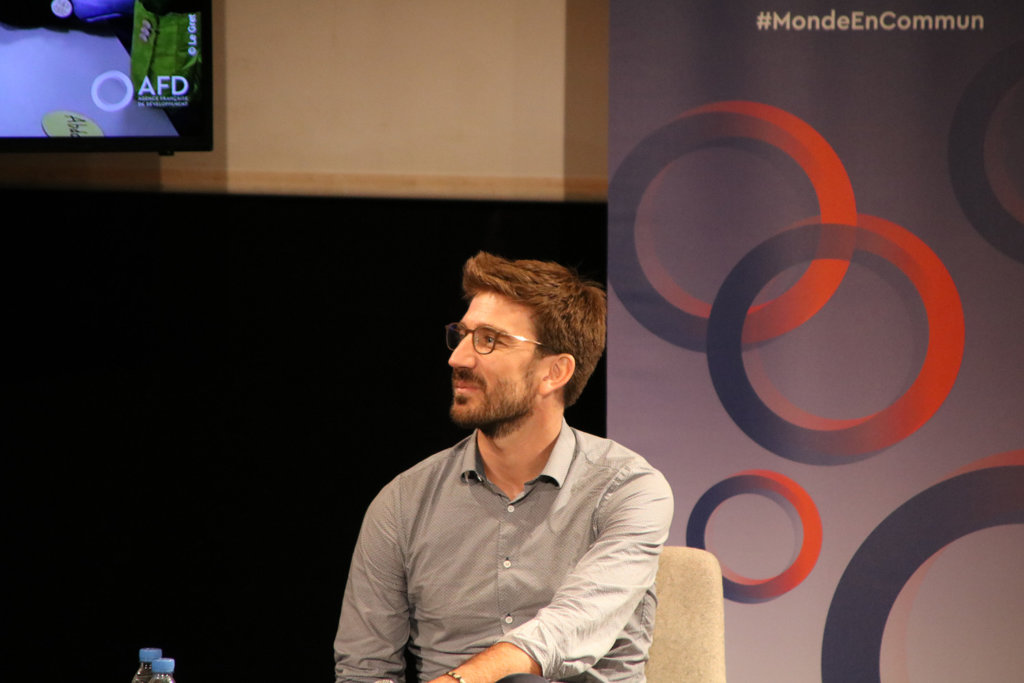
So, in concrete terms, what key areas are you working on?
TJ: The first key area we are working on is testing of several innovations for the objective we have set. For example, we developed a serious game, a board game called “F’eau ba deg’eau” (“Playing until we understand” in Wolof). The game is designed to simulate a water service operating in a rural area, demonstrate the constraints faced by the various stakeholders, reverse roles (a user becomes an operator and an officer from the Ministry becomes a user).
The game makes it possible to abandon the usual postures and look at things a little differently. It is called a serious game because it enables interactions between stakeholders to be highlighted, difficulties to be discussed, and improvements to be formulated.
The second innovation we are focusing on is the deployment of a digital solution, which combines mobile phones, radio and the internet, and makes it possible to give feedback on weak points in water and sanitation services in rural areas, i.e. frequent malfunctions in a specific place. This then makes it possible to guide resolution of priorities.
MTD: The second key area we are working on is to strengthen POSCEAS with its structuring and its upskilling. Firstly to consolidate its organisation, management capacities and deployment via relays in regions: currently we are targeting five regions. Secondly to strengthen the capacities of POSCEAS and its members around subjects such as sectoral frameworks (who does what), funding of the sector (who pays for what), deployment of the programme budget in Senegal, the impact of climate change, gender and advocacy techniques. In this way, POSCEAS will be able to effectively contribute to sectoral decisions.
How were these actions received by the various stakeholders?
MTD: So far, very well. Naturally, it was necessary initially to explain that the objective is to be a constructive civil society that makes proposals. And we received support from the authorities at the highest level when the project started. During the first activities, such as design of the game, all stakeholders were represented, from the Directorates at the Ministry to Users’ representatives, via private operators, Local authorities and journalists. In fact, the stakeholders present told us they hadn’t see each other in a long time, on an equal footing to work together for several days. Dialogue is important, and we contributed to regenerating it here.
How do you imagine what’s next, in terms of this innovation approach?
TJ: To be honest, we still have a lot of work to do, as the project started a year and a half ago and has a 4-year lifespan overall. We will continue conducting tests and evaluating these with Gaston Berger University and all the stakeholders involved. Subsequently, findings will be shared, both failures and successes. We hope conclusive tests can be adapted and replicated by other water and sanitation stakeholders, and even adapted for other essential services: we are starting to work on electrification in particular.

